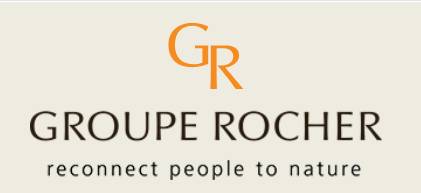Groupe Rocher, a long-established botanical cosmetics group, faced a complex challenge common to many global personal care manufacturers: how to align its legacy of plant-based innovation with fast-evolving consumer expectations in sustainability and ingredient transparency. Though the company had deep expertise in agroecological cultivation and vertically integrated supply chains, the leadership team recognized a growing gap between internal assumptions and external market dynamics.
This realization prompted Groupe Rocher to engage Dataintelo for a detailed market research and strategic consulting partnership. The goal was to ground upcoming product strategies, packaging investments, and regional growth plans in accurate, current, and unbiased insights. Internal teams needed to understand the extent to which consumers valued refillable packaging, how sensitive they were to premium pricing for botanical formulations, and whether their ingredient priorities differed across geographies.
The engagement started with a global market mapping exercise, focusing on personal care segments such as skincare, hair care, body care, and fragrances. Dataintelo segmented these by region, sustainability features, product format, and consumer behavior patterns. This baseline helped Groupe Rocher identify promising opportunities across both mature and emerging markets.
Next, the consultancy conducted a multi-region consumer study that included surveys and focus groups across key markets in Europe, Asia, and North America. The goal was to hear directly from customers—what they cared about, how they judged value, and how sustainable packaging or botanical claims influenced purchasing behavior. These findings were supplemented by interviews with channel partners and retailers, who offered a ground-level view of market reception and repeat buying patterns.
A key discovery was that refillable packaging interest was highly regional. In France and Germany, a significant share of skincare users preferred eco-refill formats and were willing to change their buying habits to support such initiatives. In contrast, consumers in some Asian markets remained hesitant, citing inconvenience and lack of awareness as barriers. This insight led the company to adjust its rollout strategy, launching refill systems in high-readiness countries while piloting alternative formats in others.
Another insight confirmed that consumers, particularly in Western markets, were open to paying a 10–15% premium for products made with botanically sourced ingredients, especially those cultivated organically or backed by scientific efficacy claims. Groupe Rocher used this validation to maintain its pricing strategy while enhancing storytelling around signature ingredients such as jojoba oil and ice plant extract. These ingredients, already part of their cultivation program, were repositioned more prominently across brand narratives and packaging.
The ingredient study also revealed that preference was not uniform across markets. For instance, buyers in Japan and South Korea favored light, hydration-focused products featuring hyaluronic acid and botanical collagen, while North American consumers responded more to firming or anti-aging claims linked to plant-based actives. These preferences shaped product development priorities and influenced how existing formulas were positioned or adjusted for each region.
Competitor benchmarking played a critical role as well. Dataintelo’s analysis of other clean beauty brands showed that many lacked either transparent sourcing practices or refillable options—elements that Groupe Rocher had integrated into its DNA but not always leveraged fully in its external messaging. This allowed the company to better articulate its long-standing commitments to responsible farming, natural ingredient integrity, and circular packaging initiatives.
The collaboration also impacted how internal teams worked. Marketing teams were able to use regional insights to fine-tune campaigns, update product descriptions, and adjust rollout timelines. R&D teams aligned their formulation priorities to match validated consumer expectations. Sustainability and packaging departments prioritized investments where real demand existed rather than where assumptions guided decisions. Perhaps most importantly, leadership gained the clarity needed to make strategic decisions with greater confidence, backed by external data rather than internal intuition alone.
As a result of this engagement, Groupe Rocher evolved its innovation strategy from one focused largely on heritage and expertise to one grounded in verified market demand. Their partnership with Dataintelo transitioned from a one-time project to an ongoing source of insight and strategic support. Periodic updates continued to monitor shifts in consumer behavior, market saturation, and emerging sustainability trends, helping the company stay relevant and agile.
This case underscores the growing importance of market intelligence in an era where consumer values are fluid, and sustainable branding is no longer optional. Groupe Rocher’s experience demonstrates how combining internal strengths with external perspective can lead to better product-market fit, stronger customer trust, and smarter investments in innovation.
Author: Véronique Schwartz-Boishu, Chief Scientific Officer






Comments